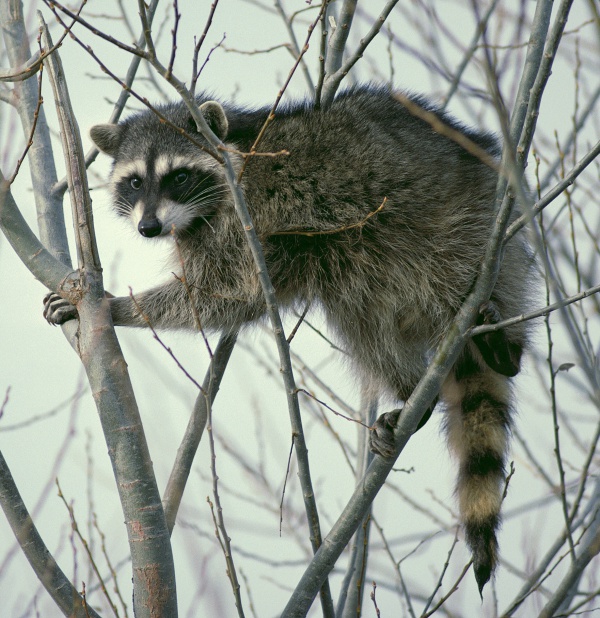Facts About Raccoon
Raccoons are captivating, medium-sized mammals native to North America, easily identifiable by their dexterous front paws, masked faces, and ringed tails. These intelligent creatures can remember solutions to problems for years, showcasing their remarkable cognitive abilities.
Primarily nocturnal and omnivorous, raccoons enjoy a varied diet that includes invertebrates, plants, and small vertebrates. Although they originally inhabited deciduous and mixed forests, raccoons have demonstrated significant adaptability, thriving in diverse environments, including urban areas. This adaptability has facilitated their spread across mainland Europe, the Caucasus, and Japan, often due to escapes or intentional introductions.
Raccoons exhibit intriguing social behaviors. Female raccoons, particularly those that are related, tend to share territories, while male raccoons, usually unrelated, form groups during the mating season. Their diet is varied, with a preference for fruits and nuts, though they also consume fish, amphibians, and bird eggs. A distinctive behavior often associated with them is "washing" their food near water sources, although this is not observed in captivity.
The breeding season for raccoons occurs in early spring, with females giving birth to 2-5 kits after a gestation period of about 63-65 days. These adaptable animals can live in a range of habitats, from forests to cities, and are known for their ability to coexist with humans. However, they can carry diseases like rabies and distemper, posing risks to humans and pets.
Historically, raccoons have been hunted for their fur and even consumed as food. In urban areas, they can sometimes be a nuisance, damaging property and crops, leading to mixed reactions from humans. Some people enjoy feeding raccoons, while others consider them pests.
Culturally, raccoons have made their mark in mythology, arts, and entertainment, often depicted in stories and media for their curious and mischievous nature. Despite their appeal, experts generally advise against keeping raccoons as pets due to their wild tendencies and potential for aggression. Pet raccoons can be difficult to manage and require specialized care. Orphaned kits can be rehabilitated but may struggle when released back into the wild.

 Canada
Canada